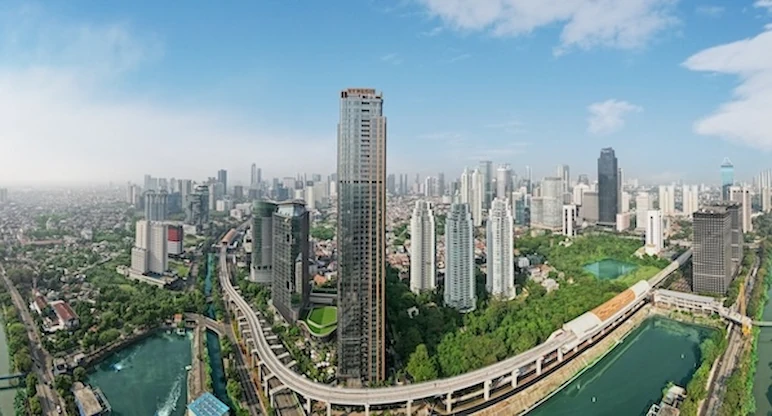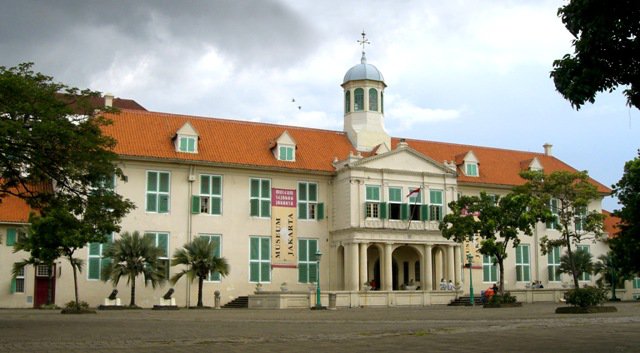Death In Indonesia: What To Do For Expats… Bereavement is one of the most stressful things that can happen to you, for obvious reasons. When that loved one is an expat in Indonesia, it can be all the more trying. So why make a heartbreakingly hard situation even worse by not knowing what to do? Here is our basic guide on what to do.
1. First off, you need to report the death
This is absolutely not the same as registering the death, and the two should not be confused. The first step in all cases is to report the death to the local police. In the case of a foreigner dying alone in a hotel, the hotel should inform the police. The police will then secure the belongings of the deceased if needs be.
Normally, in a city or other population concentration, notifying the police must be done within three days of the death. For expats here as a temporary or permanent resident, the neighbourhood administration (Kepala Catatan Sipil) at which the foreigner was registered must also be contacted within three days, too. Should the death happen somewhere else, then the time period within which the police should be notified can vary but sticking within the three-day law seems like common sense to us.
Of course, you will also likely need to contact a doctor, too, if the death doesn’t happen without one present, but do make a point of contacting the police at the same time.
2. For travelers and tourists, inform the Population Administration
If the foreigner is only visiting Indonesia, the local government (Kantor Bupati)’s Populations and Civil Registration Administration (Kependudukan dan Pencatatan Sipil), or Population Administration (Administrasi Kependudukan) will also need to be informed.
3. If the death happens ‘on the road’
Should an expat die on the road, so to speak, then the person who saw the death or found the body will have to contact the police. The police will then secure the body and find the hotel in which the foreigner was staying, then secure the belongings at the hotel. The police will likely investigate, and this is another reminder of why it’s best for all expats to follow the law and carry their ID with them, either as an original or copy.
3. Next, the body is moved to a morgue for a post-mortem
Once a death has been reported, the police will arrange for the body to be moved to a hospital morgue for a post-mortem, or to a clinic or even doctor’s office if there’s not a hospital for miles. Unlike in the movies or in some countries, this may happen very quickly, so word to the wise: get ready for this to happen within 24 hours or less. That’s the entire process, from death to post-mortem.
Once a doctor has completed the post-mortem and if a crime is not suspected (this will be dealt with in a different article), he or she will complete a Post-Mortem Examination Report (Surat Keterangan Pemeriksaan Mayat) and a Doctor’s Death Certificate (Surat Kematian) will be prepared, a copy of which will go to the Populations and Civil Registration Administration office. However, if a crime is suspected, there will likely be an autopsy. The body will stay at the morgue until registration has been done and the next of kin have made funeral or other arrangements.
4. Next steps: contact the consulate
At this stage, the expat’s home country consulate should be contacted. While for Indonesians, burial or cremation takes place within 24 hours of death, for foreigners this is not an absolute requirement. SPECIAL NOTE: you may wish to contact a consulate as soon as the death happens. Consulates may have their own advice or guidelines on how to proceed with the death of someone who is a foreigner, and this is especially the case when it comes to repatriation. A consulate’s website should have all the details and the onus should be on the foreigner and his or her spouse to know how to find it.
As it stands, unless otherwise informed it is the Indonesian authorities who will contact the consulate, who must then contact any next of kin in the deceased’s home country. However, if the deceased is a tourist, then the civil authorities may be contacted rather than the consulate or next or kin. Suffice it to say that the police and or the consulate will be able to advise on the best course of action.
5. Forms and documentation: the basics
A form needs to be filled in at some point. This will be in Indonesian and will be filled in by the neighbourhood administration office (Kepala Catatan Sipil) at which the foreigner was registered. From this form, the office will prepare a Letter of Notification of Death (Surat Laporan Kematian), a copy of which will be provided to the person who reported the death, who must then give it to the Populations and Civil Registration Administration office (Kependudukan dan Pencatatan Sipil).
Paperwork that may—we can’t vouch for the completeness of this information since different regions may vary—be required to register the death include:
• The deceased’s passport
• The deceased’s visa
• A police report verifying the death
Before preparing the Letter of Notification of Death (Surat Laporan Kematian), the following may be needed for identity verification:
• The Certificate of Registration of Permanent Resident (Surat Keterangan Pendaftaran Penduduk Tetap, or SKPPT) for a permanent resident or Certificate of Registration of Temporary resident (Surat Keterangan Pendaftaran Penduduk Sementara, or SKPPS)
• A Certificate of Domicile (Surat Keterangan Tempat Tinggal, or SKTT)
• A Certificate of Registration After Arrival from Abroad (Surat Keterengan Datang dari Luar Neger, or SKDLN)
Finally, the Registration of Death (AKTA Kematian) document will be in Indonesian and in order to collect it, the following are required.
• A Post-mortem Examination (Surat Keterangan Pemeriksaan Mayat) and Letter of Notification of Death (Surat Laporan Kematian) form
• A photocopy of the deceased’s passport
• The deceased’s residency card: either the Work Permit Visa (KITAS) or Permanent Residence Visa (Kartu Ijin Tinggal Tetap, or KITAP), as well as a photocopy
• The official police report
• Two witnesses, not under the age of 21
• A copy of the Report of Death from the foreign embassy or consulate
• The certificate of Registration of Permanent Resident (SKPPT) or Certificate of Registration of Temporary Resident (SKPPS)
As it’s in Indonesian, it’s handy to know what will be on the Akta Kematian:
• The date and place of registration
• The name, age and nationality of the deceased
• The name, address, occupation and relationship to the deceased of the person registering the death
• The names, addresses and occupations of witnesses
• A registration number
If the spouse of the deceased or a member of the consulate is present at the registration, they will be given copies of the AKTA Kematian, which can be used as a foreign death certificate.
6. Each of the processes may incur some costs
Details of the costs will vary—especially when there is a hospital and large morgue involved—and it is expected that next of kin pay these, either those here or those overseas. Consulates will be able to assist with finding the next of kin overseas, and the consulate may act as the compiler of the bills for payment when the next of kin has been found. Burial or cremation costs should also be considered.
7. Repatriation and burial/cremation
For some, repatriation is covered by insurance, while for others it will be detailed by the deceased’s consulate, who will assist in contacting next of kin in the deceased’s home country so that they can make appropriate arrangements. If the funeral is to happen within Indonesia, the next of kin then moves to contact a funeral director, who will take over the next steps towards burial or cremation. Note that Indonesian burials happen very quickly: speak to the funeral director and consulate for appropriate waiting times should foreign nationals be required to attend.




 Chyntia .DW
Chyntia .DW
 Apr 24, 2024
Apr 24, 2024






